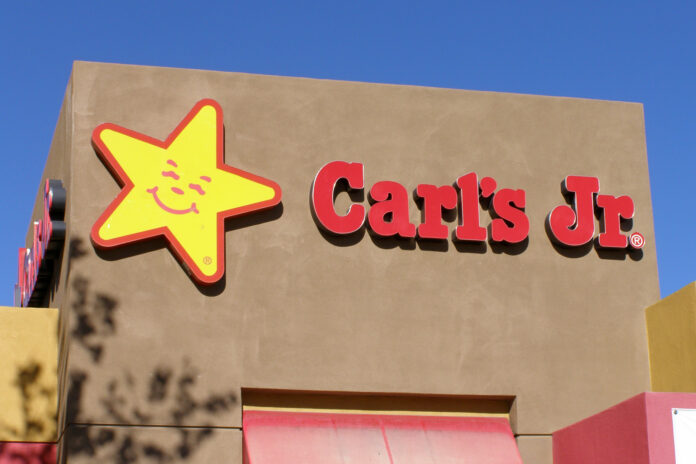Carl’s Jr.’s Beyond Famous Star burger offers a more environmentally-friendly option in Davis
There I was: driving my friend back home from the emergency room at midnight. Starving. I missed my meal-prepping time window, so I had nothing to eat at home. I knew there was nothing open in small-town Davis, much less something to satisfy my vegetarian needs. Cereal before bed seemed like my only option.
“Do you want to try the Beyond Famous Star burger from Carl’s Jr.?” my friend asked me.
What? Only de Vere’s has Beyond Burgers. Was she teasing me? After I gave up my precious meal-prepping time? After sitting for hours in a hospital waiting room, using hospital Wi-Fi to finish my homework due by midnight? The audacity…
“They close at 1 a.m., so we should hurry,” she said.
And hurry we did. The joy I felt driving back home — drive-through burgers in hand, sharing laughs past midnight with my friend — was something I thought was long gone after I made the choice to become vegetarian.
Well, my fellow Aggies, the late-night, fast food, plant-based burger gods have heard our cries and delivered. The Beyond Famous Star burger is here, and it’s awesome — not just for vegetarians, but for meat-lovers as well. Oh, and you know, the planet.
Unlike veggie burgers — which were never designed to mimic the taste of beef — the Los Angeles-based Beyond Meat burger is a pea protein and beet juice combination designed to look, taste, feel, smell and cook like beef burgers. They are specifically designed for meat-lovers who want to make “greener” choices.
As a part of the School of Agriculture and Environmental Science, I was surprised to find out how many of my fellow environmental friends, TAs, faculty and staff would eat meat regularly in their diets. The majority do not commit to a meat-free diet for two main reasons: practicality and love for the taste of meat.
The Beyond Famous Star burger is the answer to the silent screams of meat-loving environmentalists who do not want to fully commit to going vegetarian. No longer do they have to experience the cognitive dissonance of eating their “humanely” slaughtered, delicious beef burgers in the closet. The Beyond Famous Star burger could easily be mistaken for an actual beef burger by most people.
At the same time, the practicality of Carl Jr.’s fast food and its drive-through option allows for late-night food runs or quick lunch breaks.
And for the carnivores still on the fence about whether the Beyond Famous Star burger is worth their time or money, here’s the best part: It has one-tenth the climate impact of a beef burger.
Dietary changes are the quickest way to reduce your carbon footprint. Beef has the biggest carbon footprint per gram of protein, while plant-based foods tend to have the smallest impact. According to the Environmental Protection Agency, livestock contributes to about 18% of global greenhouse gases. That’s more than the output of emissions from all cars, trucks, ships and airplanes combined.
Although many people think their individual dietary choices don’t make a dent in our climate problem, think about it this way: if everyone stopped consuming animal products, we would reduce global greenhouse gases by 28%, according to a study published in Science Magazine. Over a quarter of our climate problems would be gone by the simple change of what we put in our mouths.
While everyone going vegan seems unrealistic, if we all reduced our animal consumption by half, we can reduce our global greenhouse gases by 20%. The point is not necessarily to let go of meat completely, but to at least reduce our beef consumption. Small but collective action adds up and can have great global impacts.
Most importantly, convincing regular meat eaters to choose more environmentally-friendly options is what will have the biggest impact on our net reduction of greenhouse gases. As a vegetarian, eating a plant-based burger will not have the same global climate impact as a beef-hungry carnivore would if he were to choose the Beyond Famous Star burger over the Double Western Bacon Cheeseburger.
Luckily for humanity, McDonald’s and Burger King will soon join the green bandwagon with their own plant-based burgers. The success and demand of plant-based burgers has been so great that many companies are jumping at the opportunity to get rich or die trying — and help save the planet in the process.
Written by: Daniel Oropeza — daoropeza@ucdavis.edu
Disclaimer: The views and opinions expressed by individual columnists belong to the columnists alone and do not necessarily indicate the views and opinions held by The California Aggie.





